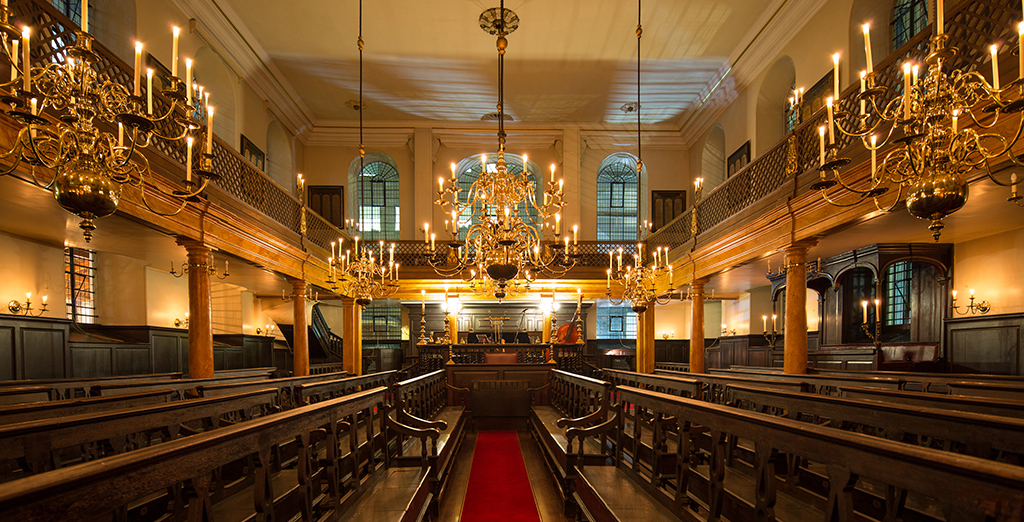 A newsletter discussing issues of Jewishness, Israel/Palestine and Anti/Philosemitism in a UK context.
A newsletter discussing issues of Jewishness, Israel/Palestine and Anti/Philosemitism in a UK context.
Category Archives: Torat Albion
Making Our Peace with Palestine

Israel and Palestine are two ways of looking at the same reality.
There are many things that trigger Jewish anxieties. Statistics showing rising antisemitism, terms such as genocide and apartheid, being expected to take a position on Israel to name but a few. There is however an underlying fear that I think is worth examining. It is the word Palestine. And what it represents. On hearing it, especially accompanied by the word ‘free’, Jews are liable to hear a call for the destruction of the state of Israel, which many elide with a call to murder Jews. So the term itself is frequently considered to be antisemitic. People might be slightly less worried if the term used was ‘the Palestinian territories’, as this explicitly refers to the West Bank, Gaza and East Jerusalem, but ‘Palestine’ alone remains deeply threatening.
Continue readingMarch of the Machers
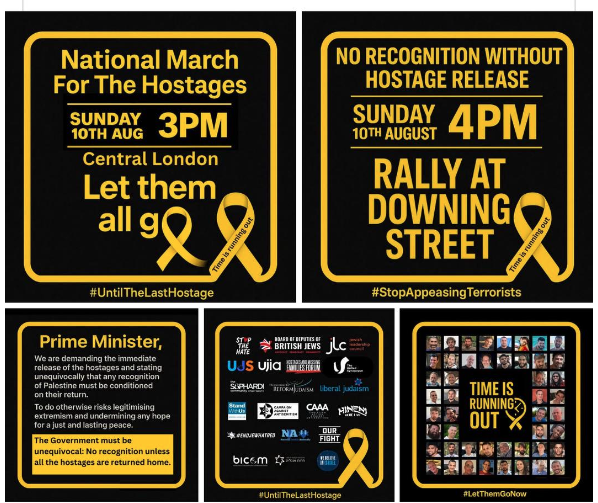
Sunday’s Demo is a March Against Peace and Against the Hostages
The Board of Deputies and the Jewish Leadership Council, with the support other Jewish communal bodies and various spurious ‘advocacy’ groups, have called a march for Sunday 10th August. One set of slides presented it as a ‘National March for the Hostages’, with the tag line ‘Let them all go’ and the hashtag #UntilTheLastHostage. Another proclaimed ‘No Recognition without Hostage Release’ with the hashtag #StopAppeasing Terrorists. A third slide spelled this demand out in more detail:
‘Prime Minister, we are demanding the immediate release of the hostages and stating unequivocally that any recognition of Palestine must be conditioned on their return. To do otherwise risks legitimising extremism and undermining any hope for a just and lasting peace. The government must be unequivocal: no recognition until all the hostages are returned home.’
This last messaging has recently been omitted from social media posts, but it is still the primary way the march has been covered by the UK Jewish Press, and tallies with a range of recent statements from the Chief Rabbi and the President of the Board of Deputies condemning the UK government for recognising Palestinian statehood. The non-recognition aspect may have been downplayed to keep the Progressives on side, but it is clearly still present. ‘This is not a political issue it is a human one. It transcends, party lines, ideologies and national borders’ proclaims the new messaging (no doubt thinking about their charitable status) while taking a stance that is hugely political, pro-Likud and explicitly nationalist.
Continue readingEnding War and Starvation for the Sake of Judaism
The time for equivocation is over if we want Judaism to remain relevant
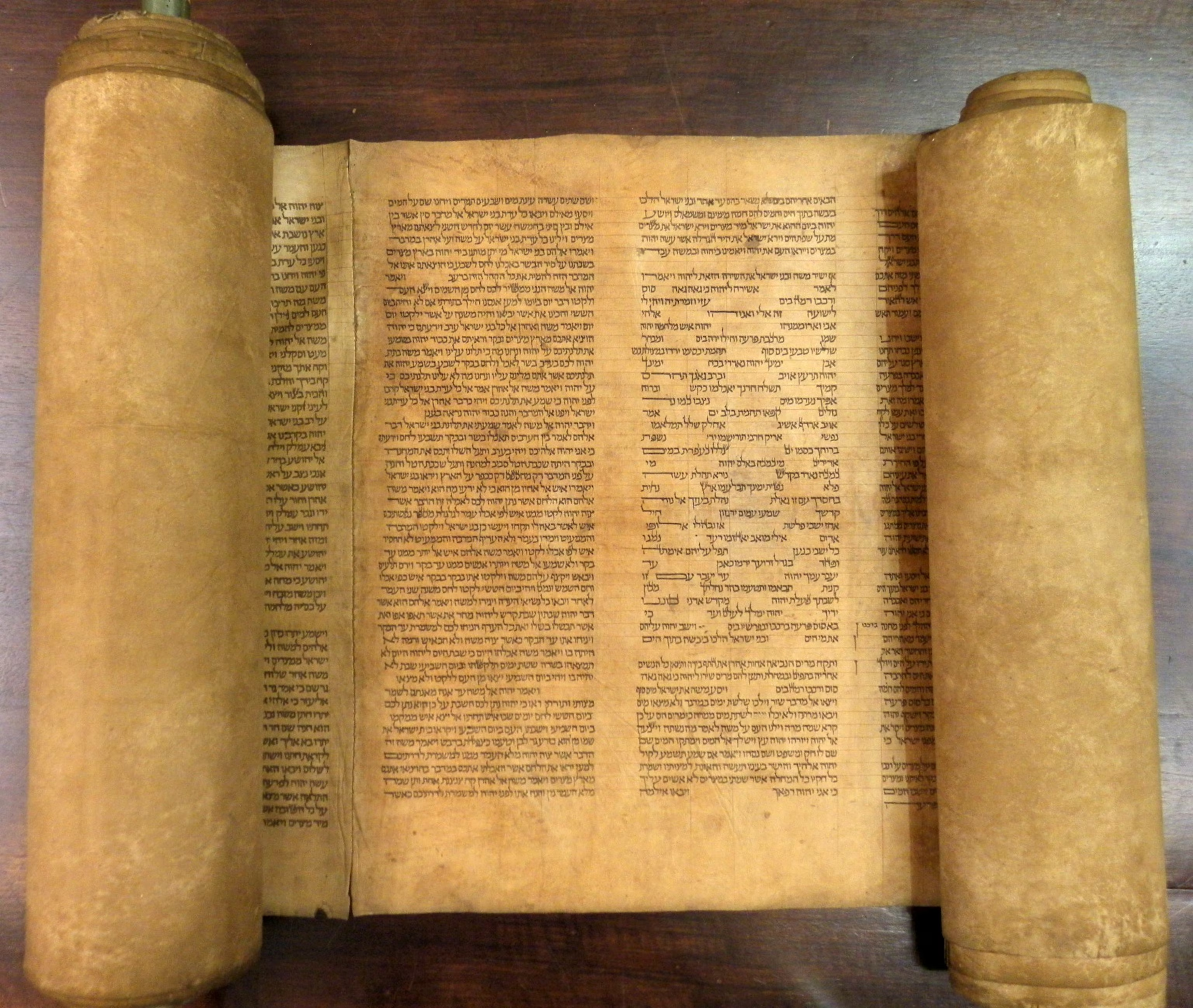
Jewish communal life has felt like a bubble in the last two years, a place where the outside world, especially as it is seen by most British people, is left at the heavily guarded door. Inside it, we don’t mention the war and as far as possible avoid saying anything of consequence. This is often a relief. It’s felt like the best one can hope for from Jewish life is irrelevance.
In the immediate aftermath of October 7 it was different. Our synagogues were filled with prayers of mourning for the victims of that day, and for the captured hostages. Acheinu became the anthem of so many communities, an 11th century text talking of ‘our brothers who are given over to trouble or captivity…may the All-prese?nt have mercy upon them, and bring them forth from trouble to relief, from darkness to light, and from subjugati?on to redemption, now speedily and at a near time.’ The text is not triumphalist, nor about the state of Israel (how could it be) and neither is Abie Rotenberg’s setting, despite having been released in 1990 during the first intifada and just before the First Gulf War. It was good and right for communities to say these prayers. But what quickly became apparent was who was not being prayed for. Israel’s war on Gaza began immediately, on October 7, and thus Palestinians were being killed from the outset. It did not take long for the number of dead Gazans to equal those Israelis killed on October 7 and not much longer to massively outpace them. Jewish communities were heavily focused on the October 7 victims, with little awareness of the Palestinian victims, and thus tended to interpret the widespread demonstrations around the globe as anti-Israel (and antisemitic) rather than viewing them as being in support of Palestinians.
Continue readingOn Rising Lions
Hedging Their Bets
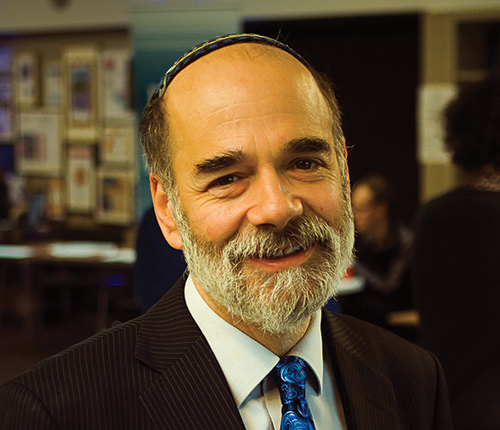

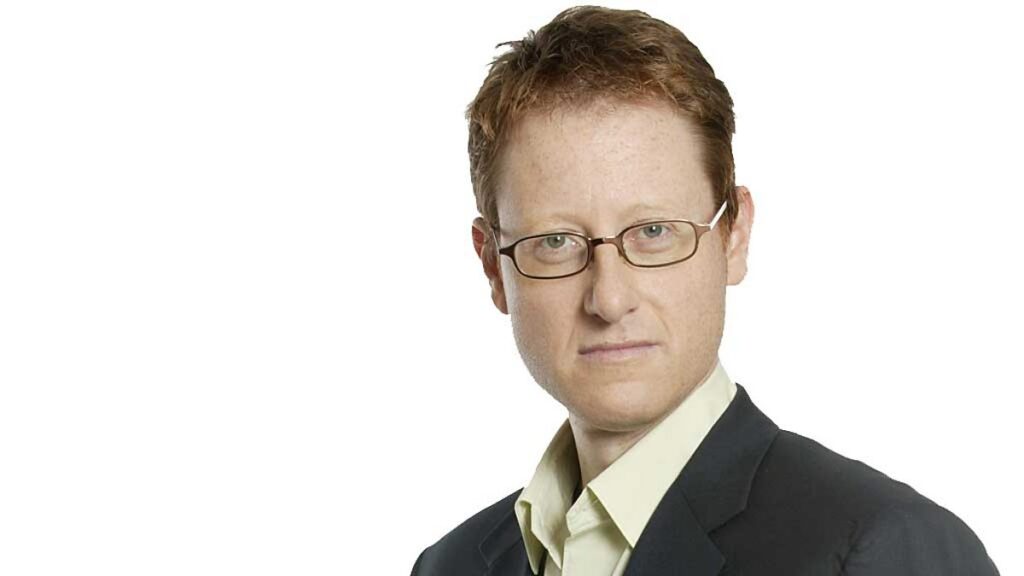
Liberal Zionist writers need to go further in their critiques if they wish to safeguard their future reputations
There has been, everyone seems to agree, a significant shift in the last few weeks. Lots of people, particularly diaspora Jews, who had not spoken out against the war until now have finally done so. As I have written before, this is to be welcomed. Better late than never. But some of those coming round, particularly those with large public platforms, have done so in a way that is so limited, so enclosed by caveats and hasbara talking points that it is unclear how much value their damascene conversion actually has. The suspicion is that they are more interested in protecting the reputations – and future proofing them – than stopping the war. We don’t need them to become anti-Zionists. But we do need them to support a clear position – that Israel is doing terrible things in Gaza, and all peaceful methods need to be employed to pressure it into stopping doing them.
Continue readingJewish Anti-Zionism in the UK: A Historic Overview
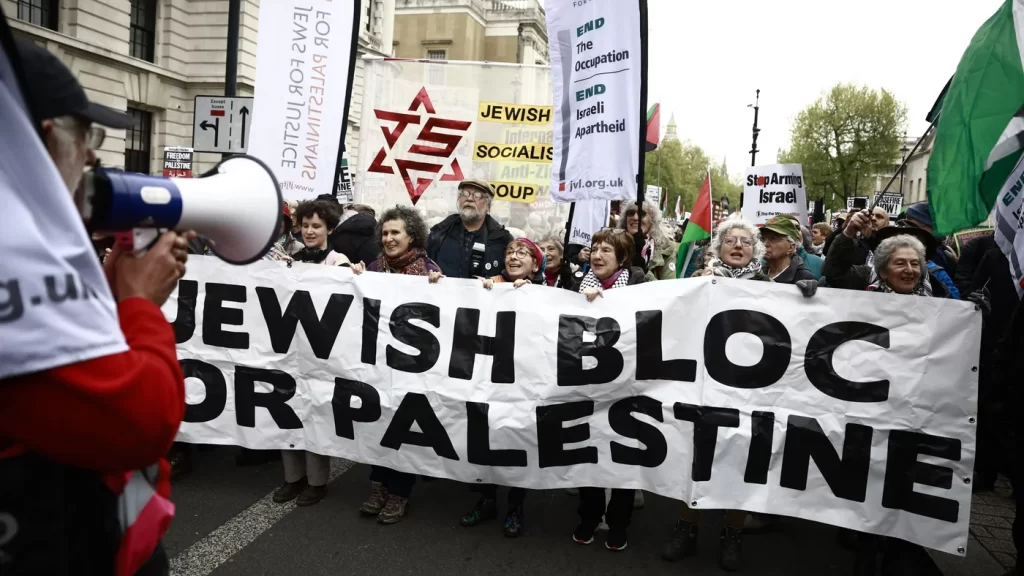
This is a lightly edited version of a talk I gave at Anti-Zionism and the Jewish Left: A Day of Communal Political Education on May 18th 2025.
I think we need to first understand that anti-Zionism can mean multiple things. Jewish anti-Zionists have been motivated by Orthodox Judaism, Progressive Judaism, Communism, British patriotism, concern over antisemitism and of course solidarity with Palestinians, though that probably influenced the fewest people. So if we choose to use the term, we need to clarify what motivations we are talking about. In the final analysis I’m not convinced that the language of anti-Zionism is ideal, and I’ll try and suggest some alternatives at the end.
Continue readingThe New Peaceniks
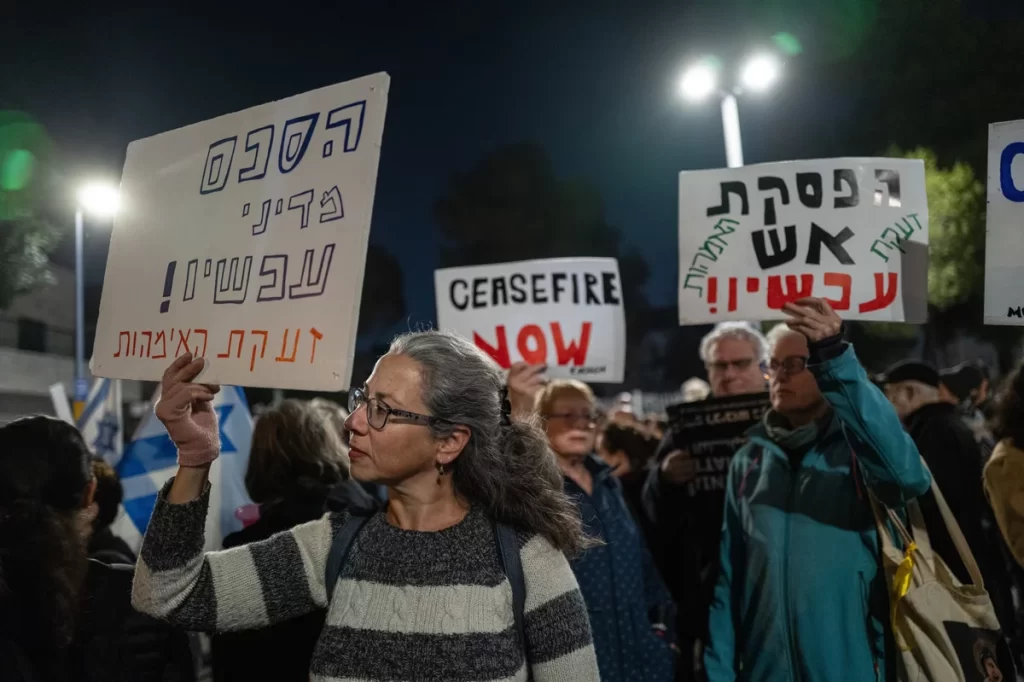
Stopping the War is More Important than Communal Unity.
Things are moving. After a long period that saw a high degree of support for the war, both in Israel and the Jewish diaspora, real change seems to be afoot. Increasing numbers of Israelis want the war to end and support a ceasefire/hostage deal to achieve this. There are reports that reserve soldiers are now refusing to show up, with some suggestions that the reserves are only at 40% or 50% of their full capacity. The 2023 Israeli pro-democracy movement is becoming an anti-war movement. In Britain, it is some of the most Israel-connected people who are turning against the war. The clearest symbol of that was the Deputies’ letter, signed by 36 Deputies from Reform, Liberal and Masorti synagogues (the number deliberately echoing the idea of the lamed vovniks, the 36 anonymous righteous people on whom the world depends). This was followed by a mass letter of synagogue members in support of the Deputies, and a strong letter from 30 Progressive rabbis which called for ‘an end to the bombing; an end to the siege; and the safe release of the hostages’. It is the mainstream nature of most of these people that has made them impossible to dismiss. We radical Jews have written countless open letters over the years. It’s done little good. We need the people the mainstream finds impossible to write off, so they are forced to write tedious op-eds about communal unity rather than instantly dismissing their critics out of hand.
Continue readingMerger She Wrote
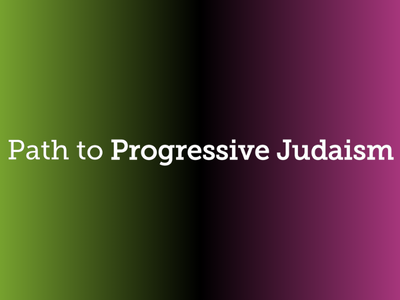
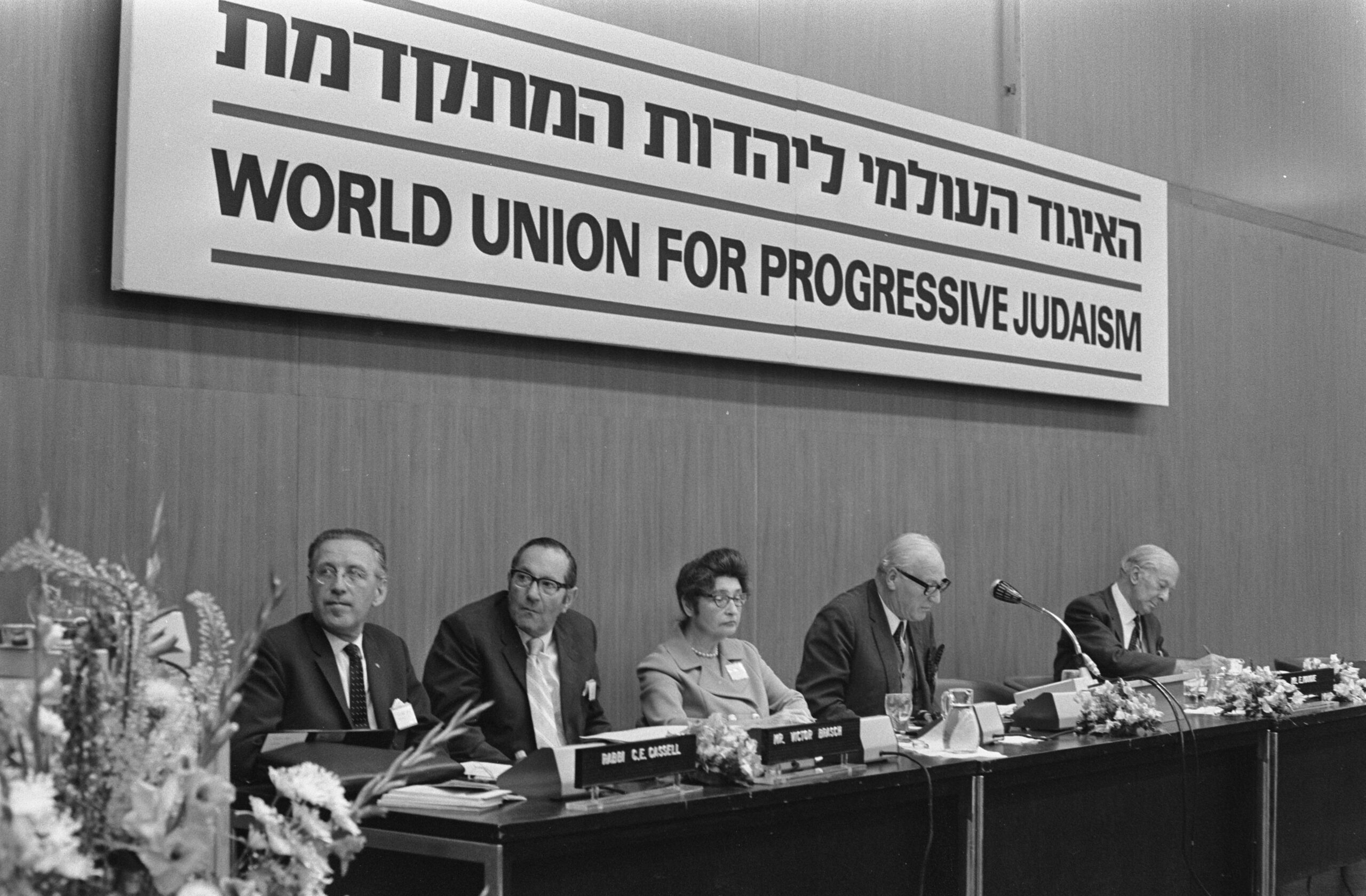
Towards a Non-Statist British-Jewish Denomination
I’m back to this. A topic which I previously and mischievously claimed was of interest only to about seven people, which turned out to interest quite a few more. A topic that is utterly specific to the British Jewish community. I refer of course to the proposed merger of Liberal and Reform Judaism to form a new ‘Progressive Judaism’ body, which is due to be voted on by synagogues in May. Below I try to transcend managerial debates and the binary of acceptance/rejection of the proposal, and to look at underlying questions of how Judaism relates to the state.
Continue readingErasing Gaza
Two Recent Film Controversies and the Denial of Palestine

In the world of pro-Israel discourse, both Jewish and Western, Gaza barely exists. On the face of it this is a ridiculous statement. Surely Gaza is frequently discussed, especially in relation to Hamas rule and the Israeli hostages who remain in captivity there? A closer examination, however, reveals that popular engagement with Gaza, and with Palestine more generally, is so skin-deep as to be practically irrelevant.
Continue readingOn Emotion
Our intense emotional connection with the Israeli hostages needs to be expanded outwards

There is a lot of emotion around. Social media thrives on it, of course. There is no point in sharing something that you are indifferent about or disinterested in. There must be rage, tears, upset, care, concern, love and hate. And there is always plenty of content to get emotional about. If you fail to demonstrate sufficient emotion then perhaps there is something suspect about you, something lacking. Dispassionate engagement is not tolerated. I could be discussing any number of social or political issues online, but I am here talking about the world of pro-Israel, or simply Jewish, social media. I am well aware that there is a parallel phenomenon on pro-Palestinian social media, but here I am focusing on what I see in my community, my world.
Continue readingBeyond Antisemitism
A range of new books and reports on antisemitism offer important insights but need to go further to escape the confines of orthodoxy
This article first appeared in Vashti. It was written in December 2024 and January 2025, but reflects issues and questions that I’ve been thinking about for some time. It’s worth stating here that I much admire the books and reports mentioned below, I just want them to go further and forge a new and more inclusive path.
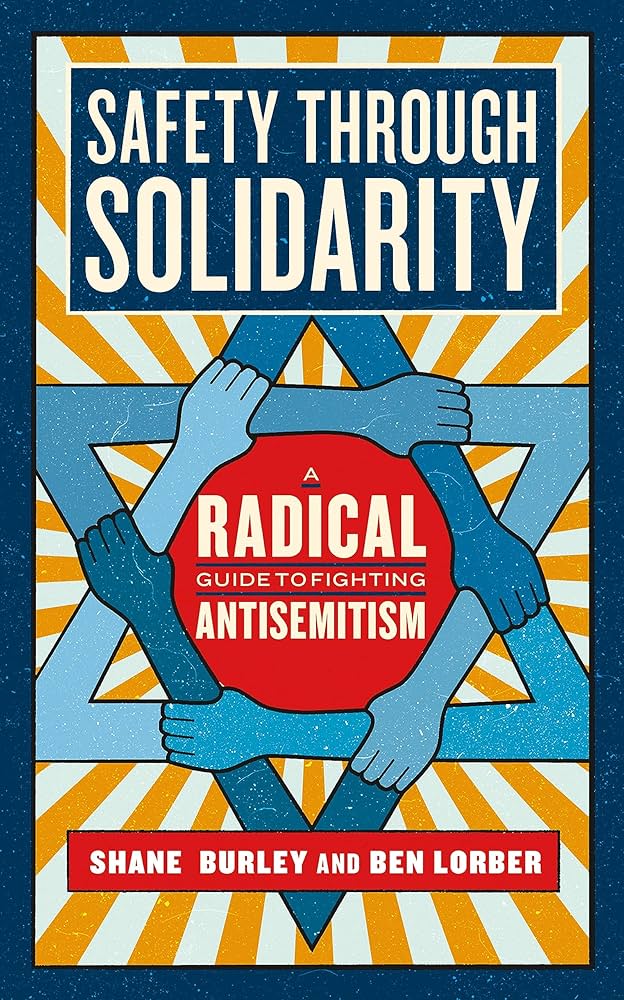
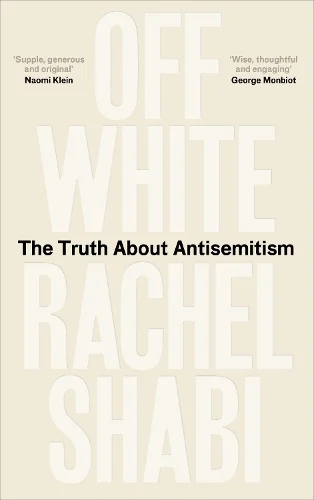
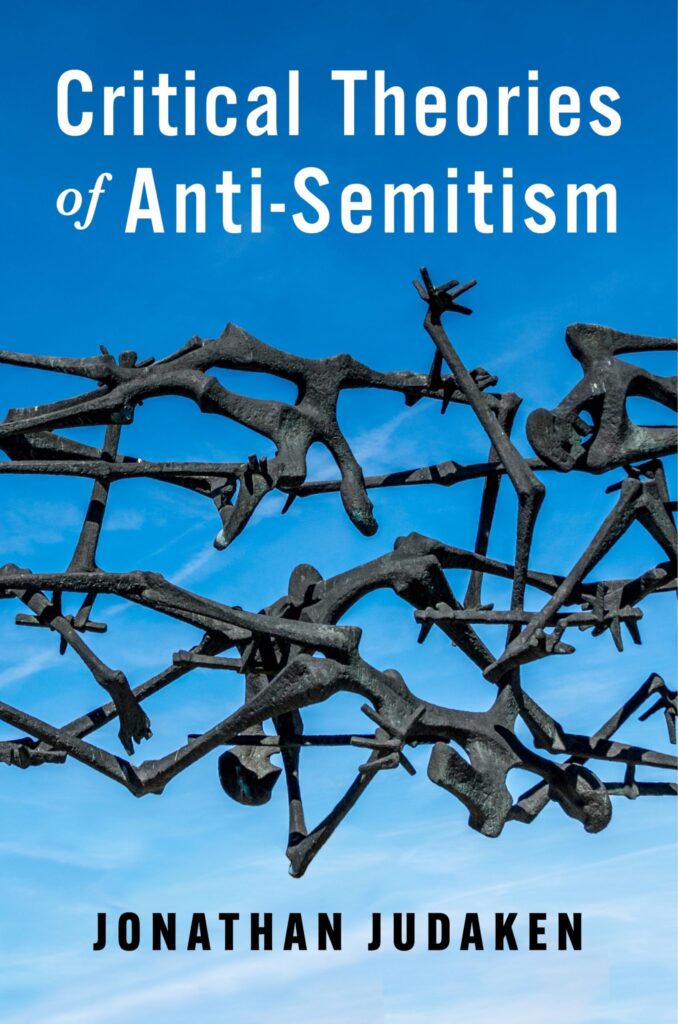
Of the writing of books on antisemitism there is no end, as Kohelet might have said had he lived in the 2020s. And verily, there has been an enormous outpouring of words on the subject in the last decade or so. Many of those words have been journalistic, ephemeral and not very analytic. But in recent years, quite a few have made it into book and report form, making it easier to examine them for their positions, assumptions and approaches.
Continue readingMarching Days
On London Palestine Marches, Synagogues and Cultural Christianity
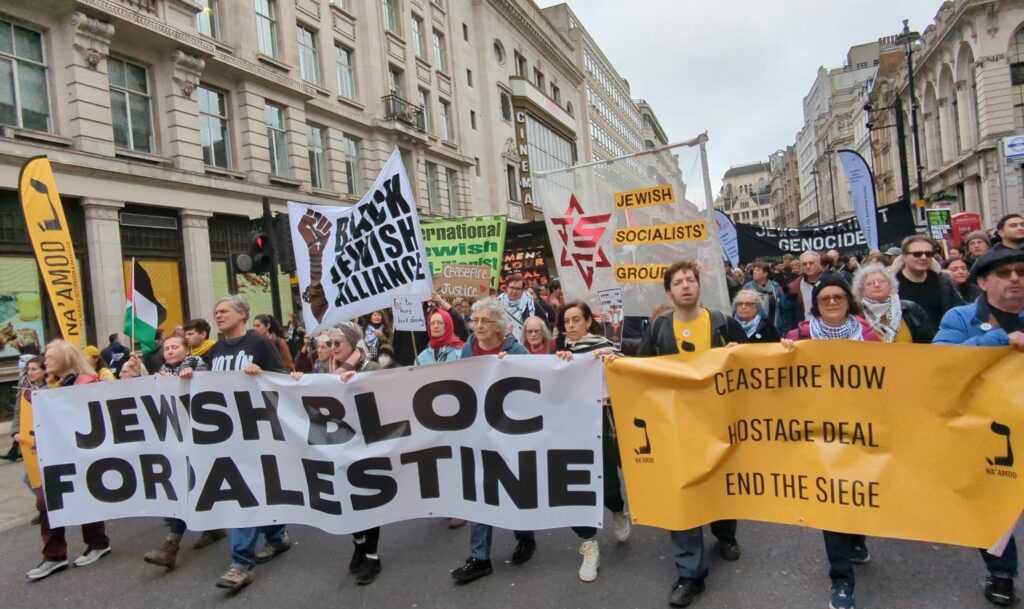
Things I’m reading:
I’m slowly working through Amos Goldberg and Bashir Bashir’s remarkable 2018 collection The Holocaust and the Nakba: A New Grammar of Trauma and History. It’s a very significant text and feels like required reading for anyone active in this area.
I found this academic article by Raz Segal very topical and helpful: Settler Antisemitism, Israeli Mass Violence, and the Crisis of Holocaust and Genocide Studies.
Connected to it, this piece from Shira Kline on the political divide amongst Holocaust studies scholars is also excellent.
A great piece on Palestinian anti-Nazi art from the 1940s.
I liked this piece from almost a year ago by Shane Burley – Why Antisemitism is an Insufficient (and Risky) Explanation for Hamas’s October 7 Attack on Israel.
As I finish writing this on 14/1/2025 it feels like a ceasefire/prisoner exchange deal is on the verge of being announced. I very much hope it is. Even if it happens, the war will not necessarily end, and I suspect that Palestine marches will continue.
I wanted to write something on the police restrictions placed on the planned National Palestine March on January 18th. In short, despite previously having agreed to it, the police have banned the PSC from beginning their march outside Portland Place, the BBC headquarters, which the PSC hoped to use to highlight criticisms of the BBCs coverage of Israel’s war on Gaza. Jewish and pro-Israel groups (and sadly the line between the two is increasingly non-existent) called for the march to be banned or the route changed due to the proximity of the starting point to Central Synagogue (the entrance to which is in Hallam Street), pressure which was amplified by politicians and the press. Last week the police caved on this and said they would use the Public Order Act to prevent the PSC using that starting point on that day, explicitly due to a supposed need to protect synagogue-attending Jews on Shabbat. In the last couple of days, the PSC has said they will reverse the route – starting at Whitehall and ending at the BBC. Despite the fact that this would avoid the arrival of the marchers clashing with the end of Shabbat services, and very few shul-goers would be around, the police have said that the restrictions around Portland Place will remain, showing a predictable lack of understanding of the times when most Jews are in shul.
Continue readingIt's Channukah So Haunt Me
A bit of Jewish light entertainment analysis for the festive season
As it’s nearly chrismukkah I thought it a lighter post might be appreciated. I also thought that it would be appropriate given the Victorian tradition of telling ghost stories at Xmas, out of which emerged Dickens’ A Christmas Carol (a text which I can’t help but see as indebted to Christian conversion narratives). This is a piece I wrote for the Parkes Institute at the University of Southampton, where I did my PhD, as part of a series on Jewish historical sources. I chose to focus on a piece of low culture, a television sitcom from the 1990s that I grew up watching. As you can probably tell, I like it very much and feel that it has been unjustly forgotten. No doubt that is in part because it is a very British Jewish show, making it an ideal subject for this newsletter which is dedicated to celebrating how Jewishness has been expressed in our strange little corner of the diaspora. I could write another PhD on So Haunt Me, and on its star, Miriam Karlin, but the below will do for now.
Wishing you a jolly nittel, a merry khanike and a very happy goyish new year.

Seeing Things Clearly
How projecting past persecution onto Palestinians only perpetuates the war

Things I’ve been reading:
Rachel Shabi’s new book Off White: The Truth About Antisemitism is thoughtful, insightful and compassionate. I don’t wholly agree with all of the book, but I think it’s well worth engaging with. (Needless to say, there are many truths about antisemitism).
Lutz Fiedler’s Matzpen: A History of Israeli Dissidence is a terrific read. I can almost guarantee you will learn a lot.
Critical Theories of Anti-Semitism by Jonathan Judaken is also brilliant. It combines an introduction which reconceptualises the field, using Judeophobia as the umbrella term and anti-semitism (he makes a strong case for the hyphen) for the 1870-1945 period); chapters on each of Sartre, Arendt, Lyotard, Poliakov and more on their theories of Jews and anti-semitism; and a conclusion that considers forms of Judeophobia that have grown since 1945.
A must-read from +972 on the current situation in Northern Gaza.
I found this piece by Louis Fishman in Prospect really interesting, on the ongoing influence if Ottoman and Mandate structures in the contemporary Middle East.
I want to address an underlying issue that I think has led many Israelis and diaspora Jews to support the war. I think it is based on a fundamental misunderstanding or misdiagnosis of the conflict, one that is rooted in historical trauma.
A primary argument frequently made by supporters of the war is that Israel has no choice, that it is faced, in Hamas and Hizbullah, with genocidal enemies who plan to kill not just every Israeli but every Jew. We, they say, are compelled to destroy them before they destroy us. We have no choice. You can see why this argument is so popular; if there if is no choice then there is no debate. If your military enemy is the epitome of evil, who aims to destroy you entirely, then there can be absolutely no compromise with them and there is no argument. To support this position Hamas has been described as genocidal, and October 7th an attempt to simply kill as many Jews as possible. But this analysis misunderstands October 7th and the Palestinian struggle more generally. And this misunderstanding did not begin with October 7th – it is one that goes back decades and is probably constitutive of Israeli society. The primary subject of the misunderstanding is Palestinian violence. Such violence may often be brutal, unethical and tactically unwise. But it is not genocidal. It does not aim to kill all Israelis, still less all Jews.
Continue readingA Time for Dancing
Simchat Torah was a creation of the diaspora; it shouldn’t be altered because of events in Israel
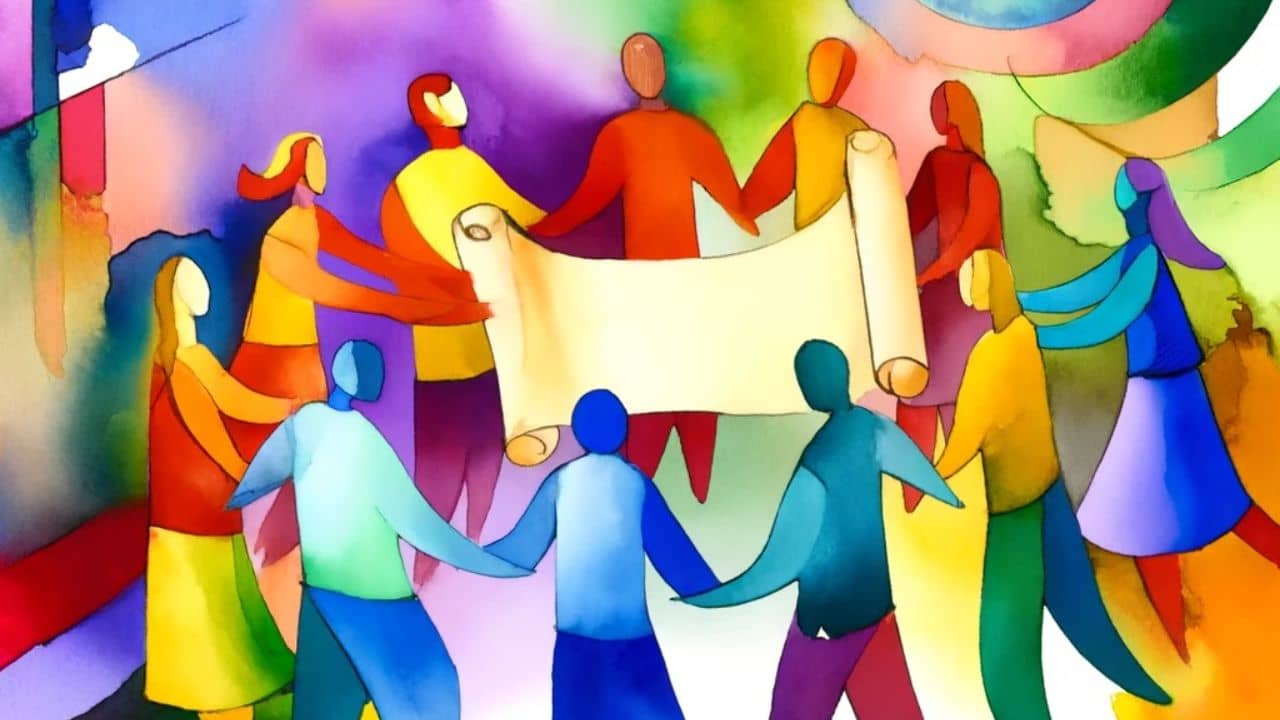
We are seeing many calls this year to do Simchat Torah differently. In the light of the October 7th attacks, which took place last year on Simchat Torah, there are suggestions that our joy should be tempered with sadness – that the traditional dancing of the festival should be replaced or changed to make it more suitable for mourning. I understand this sentiment. I remember seeing the news on my phone on the way to synagogue last year. At that point we didn’t know the extent of what had happened and so my community decided to carry on as normal which I felt was the right decision. At that point the attack hadn’t yet been framed as ‘October 7th’, this quasi-mythical event which has been repeatedly framed as the worst attack on Jews since the Holocaust. So, this year, particularly in Israel, there have been many calls for changes in ritual such as more morning prayers and conducting some of the hakafot silently instead of joyfully.
Continue readingWhat Would a Jewish Liberation Theology Look Like?
A recording of a live panel event from last month
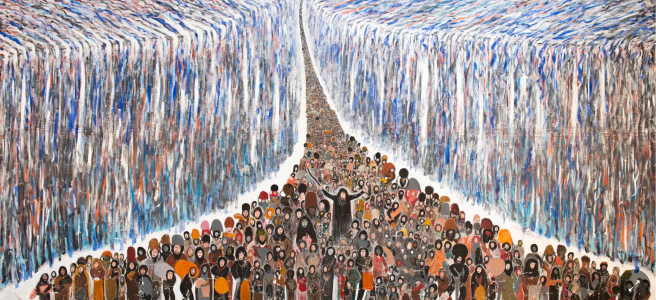
This is a recording of a live event held on 18th September at Mosaic Jewish Community in Stanmore. It was a panel entitled What Would a Jewish Liberation Theology Look Like?, and comprised Rabbis Robyn Ashworth-Steen, Leah Jordan, Anthony Lazarus Magrill, Daniel Lichman and Judith Rosen-Berry, and was chaired by me, Joseph Finlay. This is an edited recording, containing all of the panel contributions but omitting most of the contributions from the floor, as they were sadly not well picked up by the recording.
It’s a rich and multi-faceted conversation, with subjects including the book of Exodus, the character of Moses, the influence of empires, both ancient and modern rabbinic attitudes to poverty, the difficulties of doing liberation theology within a halachic framework, the possibilities of a ‘haskalah chadasha’ (new Jewish enlightenment) and the opportunities and challenges of attempting to organise synagogues around ideas of liberation. It is not especially focussed on issues of Israel/Palestine, although I did bring that subject in towards the end. While the current conflict is omnipresent it seemed important to consider issues of Judaism and Liberation Theology in the broadest possible way. I hope it is of interest, and can lead to many more such conversations.
Zakhor
Remembering All the Victims of the Last Year
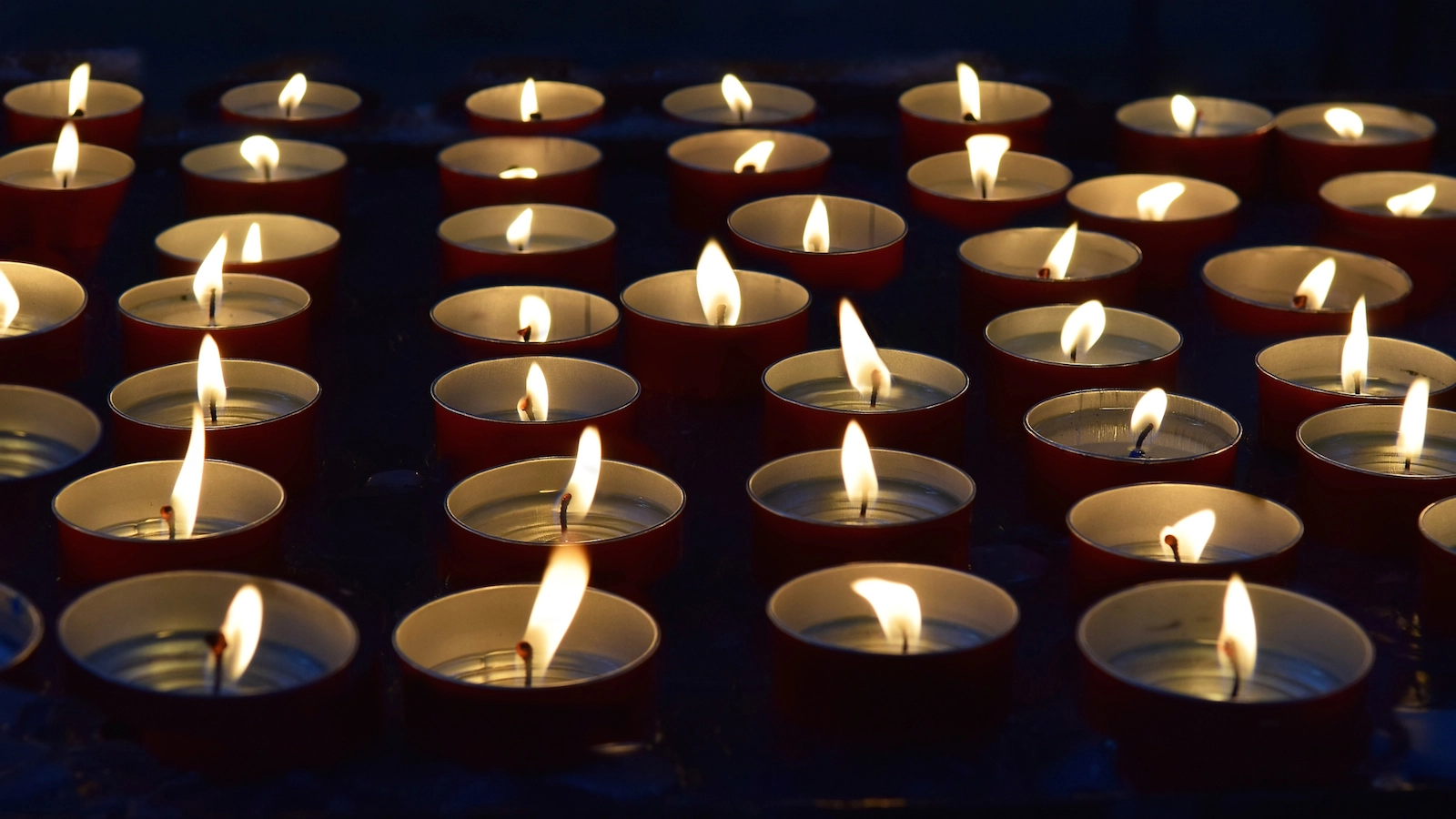
Today, 7th October 2024, sees memorial events across the Jewish world, in memory of the roughly 1100 Israelis who were killed on October 7th 2023. In Jewish terms it is the end of Shnat Ha’evel, the year of mourning that follows the death of a close relative. It is right and good to mourn them, and to remember each of them in all their individuality and specificity, not only as a group united by the day of their deaths. They leave behind a huge gap amongst their families and friends. May their memories be for a blessing.
Continue readingBeyond Punching Up and Down
Overcoming Divisions in Anti-Racism
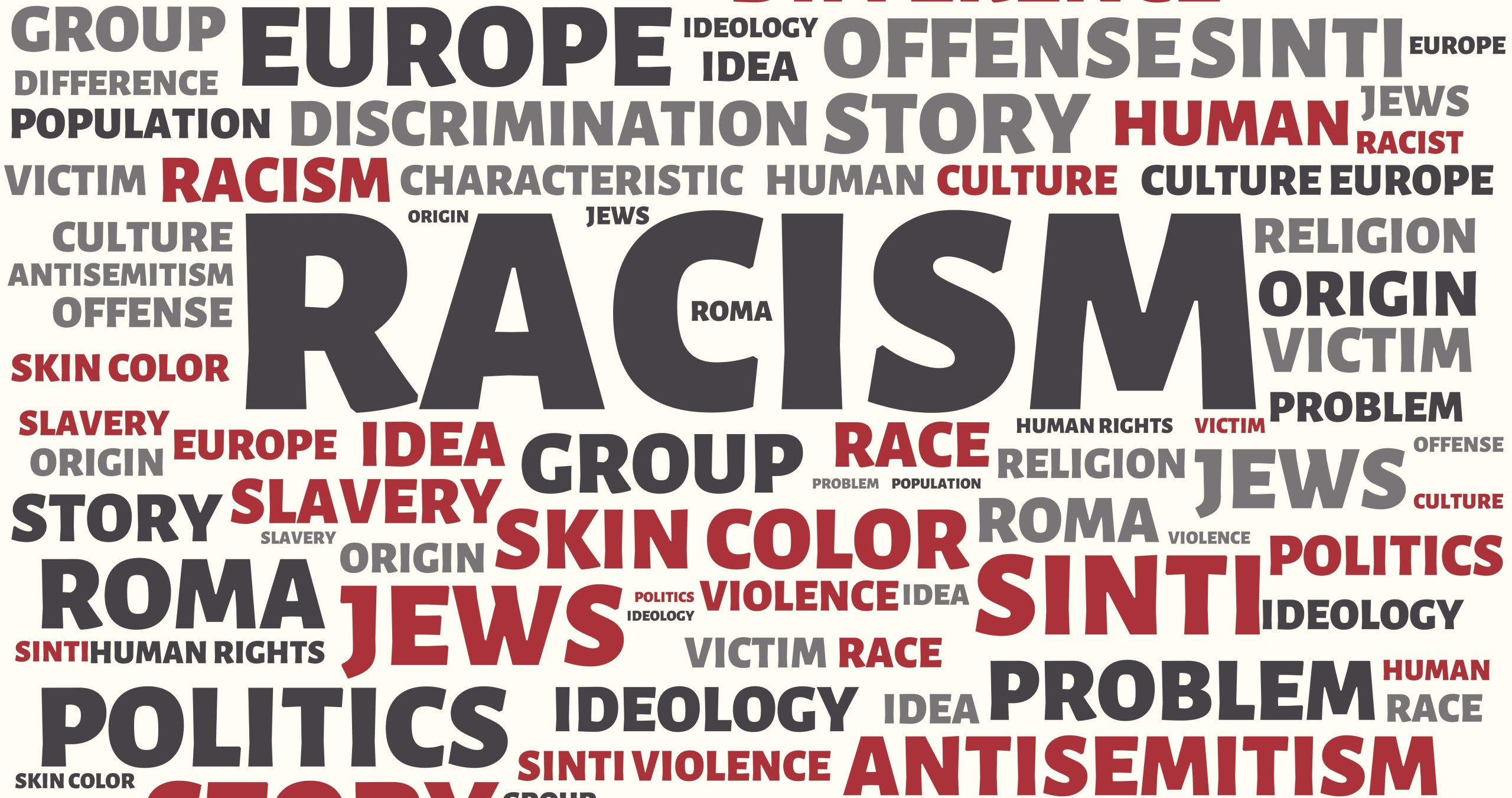
Things I’ve been reading this week:
This piece by David Feldman, the organiser of the conference in which the paper I share below was delivered, has written a very interesting essay on disconnections which have emerged between anti-racism and antisemitism since the 1960s.
I found this dialogue between Orla Guralnik (the therapist from the Netflix show Couples Therapy) and Christine, a former participant on the show, rich and fascinating. Guralnik grew up in Israel and Christine is Palestinian and they have a full and frank dialogue on all aspects of the conflict.
This long article on Ta-Nehisi Coates’ new engagement with Israel-Palestine after taking a trip there in the summer of 2023 is a must read.
This (again long) New Yorker profile of Jewish Currents magazine is a great read, and can usefully be paired with this New Left Review interview with Currents editor Arielle Angel (although both the New Yorker and the NLR bring their own agendas to the pieces in quite unhelpful ways)
I’m really enjoying this book, a new history of the Palestine Liberation Organisation Research Center in Beirut.
This was a paper I delivered on September 18th at the one day conference ‘Anti-racism and anti-antisemitism’ which took place at Birkbeck, organised by the Birkbeck Institute for the Study of Antisemitism.
There is a tendency today to do anti-racism in siloes. The bodies which deal with antisemitism have little to say about anti-racism more generally and bodies who work on anti-racism do scarce work on antisemitism. There is a distinct lack of organisations who do both simultaneously, and this results in an atmosphere of suspicion, competition and sometimes hostility between two worlds which, on the face of things, ought to be allies.
Continue readingCrossing the Narrow Bridge
On Diaspora Jewish Fear, and Those Who Stoke it

Things I’ve been reading recently:
A great piece about campus wars since October 7th and what they show about our ides of ‘the campus’
A highly thought-provoking article on ‘The Jew as Reactionary in the US Media’ with many implication for the UK as well.
A piece from 2017 on growing up Jewish in Holland and constantly being compared to Anne Frank
A fascinating essay connecting the Yiddish and Palestinian writer Avrom Sutskever and Mahmoud Darwish (email signup required)
A brilliant ‘Declaration of Diaspora Jewish Independence’ from the Prague-based group Jewish Voice of Solidarity
Jews are afraid. We have been told this again and again over the last ten months, so presumably it must be true. We’ve been told it mostly by media sources, with articles replete with anonymous Jewish testimonies, or ones with names changed, a time-honoured technique for insinuating something without having to actually prove it. We have also heard it from Jewish family and friends, usually influenced by this media coverage. On the whole, this is the source of the fear, rather than direct personal experience. But in addition, many people know someone whose niece’s friend saw something nasty. And everyone has seen a screenshot of something offensive. There’s a reasonable chance that you reading this have also felt afraid, unnerved at a comment or something you’ve seen online. And if you haven’t felt afraid, isn’t that in itself a cause for concern? Do you worry that you’re missing something? Or that there might be something suspect about your Jewish identity?
Continue readingAnatomy of a Merger
The Politics of Progressive Judaism, and what it could learn from the Quakers
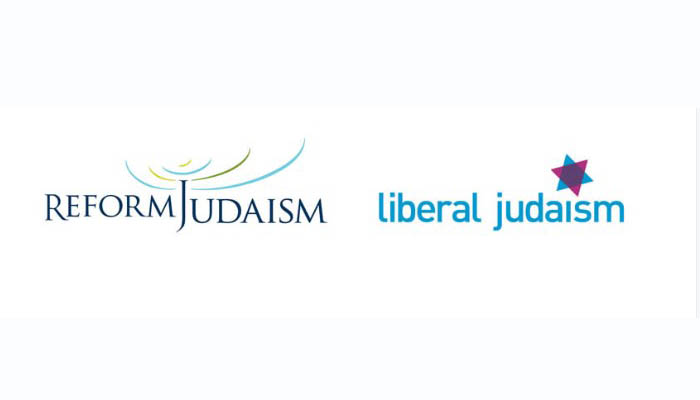
Things I’ve been writing / reading
I recently published this review of Marc Dollinger’s Black Power, Jewish Politics: Reinventing the Alliance in the 1960s in the journal Racial and Ethnic Studies, including some wider discussion of the scholarly and political issues in question. (This is a limited gift link, if it has expired just email me for a copy)
This is a powerful and disturbing piece from Jewish Currents about ‘October 7th Tourism’ in Israel.
This piece argues that Israel has expanded the human shield argument to new degrees, tracing the history of the concept.
A rich account of a contemporary descendant of a German Jews returning to his family bookshop in Berlin
A provocative but often insightful piece on the antisemitism of the Israeli state
An extraordinary account of the 1989 Mizrachi-Palestinian peace conference in Toledo
This week I want to write about a topic that absolutely nobody is asking for. A subject so niche and so deeply British and Jewish, that it cries out to be covered on Torat Albion. That’s right, you’ve guessed it, it’s the merger of the UK Liberal and Reform movements and the creation of a new single body called Progressive Judaism. To the seven people who are really interested in this: strap right in, it’s going to be one hell of a ride. To everyone else, stay with me, the subject is deceptively interesting, and contains much ideology underneath its managerialist façade.
The merger was first announced in April 2023, in a top-down manner. Presumably the organisers wished to get the announcement out before consulting synagogues – to present it as a fait accompli. Two primary reasons have been given for the move. The first is technocratic: it will save costs. Why run two offices, with two backroom teams, when you can have one? Within a neoliberal hermeneutic, in which everything is reducible to expenditure and profit, this logic is difficult to refute. No doubt there is also a desire to bring in the three independent synagogues who are broadly aligned with progressive Judaism – West London, Westminster, and Belsize Square Synagogues. Bringing some or all of them into the fold would certainly increase funds and reduce costs.
Continue readingThe New Sectarianism
The Muslim Vote campaign has been criticised for engaging in sectarian politics in the election, but in reality everyone is doing it

Thing I’ve been reading / listening to
This Jewish Currents podcast, on Arab Jewish / Mizrachi identity and politics is a must listen, and happily contains some British accents, being based on a retreat which took place in the UK.
I’m reading Once We Were Slaves: The Extraordinary Journey of a Multiracial Jewish Family. It’s a historical book, tracing a prominent American Jewish family with ancestors who were slaves in the Caribbean.
A good piece on the recent Tel Aviv peace conference by Haggai Matar
A thoughtful and thought provoking debate between Matan Kaminer and Andreas Malm on October 7th and the war on Gaza.
Brian Cheyette’s lecture Decolonising Testimony, connecting the testimonies of Frederick Douglass and Primo Levi
I didn’t write about the election during the campaign. There was nothing for me to say, because, blissfully, there was little discussion of Jews. The only exception was Keir Starmer saying that he tries to stop work at 6pm on Friday evenings to be with his family, clearly a reference to Shabbat dinner given that his wife is Jewish. Laughably, the Tories tried to paint this as an example of the Labour leader being lazy. Otherwise, nobody was talking about Jews, and this was a huge relief. In the 2019 election, and the year or two preceding it, it seemed like almost every programme or article felt the need to say something about Jews and antisemitism, with much of it being total nonsense. The experience of being constantly talked about, and feeling compelled to rebut it when it was wrong, was exhausting and unwelcome. This time round, no Jews was good news.
Continue readingAll of Them
We are telling the wrong stories in relation to violence in Israel-Palestine. A historical overview can open up a new story; one in which we mourn all deaths together.

Things I’ve read / watched recently:
A video of an excellent Zoom talk organised by the fairly new group – Progressive Jews for Justice in Israel/Palestine. It contains contributions from 4 young British Jewish leaders who critique the response of the community, and in particular Progressive Judaism, to the Gaza war.
A very enjoyable read: Isaac Asimov on Dominationist Ethnonationalism about a furious argument with Elie Wiesel.
This Jewish Currents podcast on secularism, featuring older Jewish secularists furious that the magazine has introduced a Parashat Hashavua (Torah portion of the week) has produced much debate and is well worth listening to. This one on conflicts over politics in synagogues is also great.
I recently read Leon Rosselson’s memoirs, Where are the Elephants? It’s a great read, and well worth engaging with for anyone on the British / Jewish left, especially if you’re interested in political songwriting.
Do get in touch if there are subjects you’d like me to write on in future
(10-15 minutes reading time)
There has been, in the last two months, two different stories, told by two groups of people. The Jewish/Israeli story is ‘October 7th’; a day repeated on loop in the Israeli media. In this narrative the Israeli victims of the day are the only ones remembered, in addition to soldiers who have died since then ‘because of October 7th’. This is then placed in the context of a longer story, of Jewish and Israeli deaths over the last 100 years. In contrast, the Palestinian/Palestinian Solidarity story is ‘the genocide’; an approach which sometimes treats the war in Gaza as if did not arise because of October 7th and was simply a continuation of Israeli attempts to ethnically cleanse Palestinians. This is placed in the wider context of Palestinian deaths and expulsion since the Nakba. This narrative inevitably only mourns the dead in Gaza – understandable given how large the death toll there is – and does not consider Israeli victims of Hamas.1 What if we brought these narratives together, as part of a single story? What if we could mourn all of them, and treat them all as mutual victims of war, nationalism and empire?
Continue readingLearning from Edwin Montagu
What a British Jewish politician from 100 years ago can teach us about anti-Zionism and antisemitism
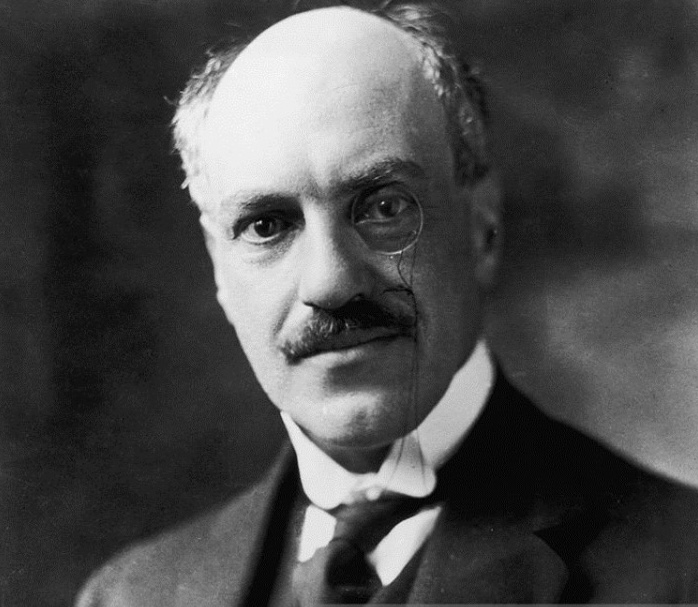
This is the 6th Torat Albion essay. It has a more historical bent to the others and relates to my academic research more closely. Thank you for subscribing or reading, and I hope you’re enjoying the journey. I’d love this to feel like a community of enquiry rather than just a top-down initiative, so please do post your thoughts as comments or send them to me by email. If I can, I’ll incorporate your thoughts into future pieces. At some point I hope to create a Torat Albion podcast, to discuss the issues in the week’s essay with some guests, thus furthering the dialogue. And do share the posts with others who you think might be interested.
Things to read (I don’t necessarily agree with everything in them):
A rich piece on the history of the Venetian ghetto in the LRB.
A provocative but enlightening piece on philosemitism and the White House by Em Cohen
A fascinating read from August 2023 on Israel’s bizarre futurist neo-liberal plans for rail lines across the middle east
A detailed overview of developments within the anti-antisemitism movement over the past 15 years from Adam Sutcliffe
A thought-provoking collection of essays from 2022 on Palestinians imagining futures beyond the model of the nation state (free book)
Continue readingThe New Jacobs Affair
Censoring British Rabbis Who Don’t Toe the Line on Israel
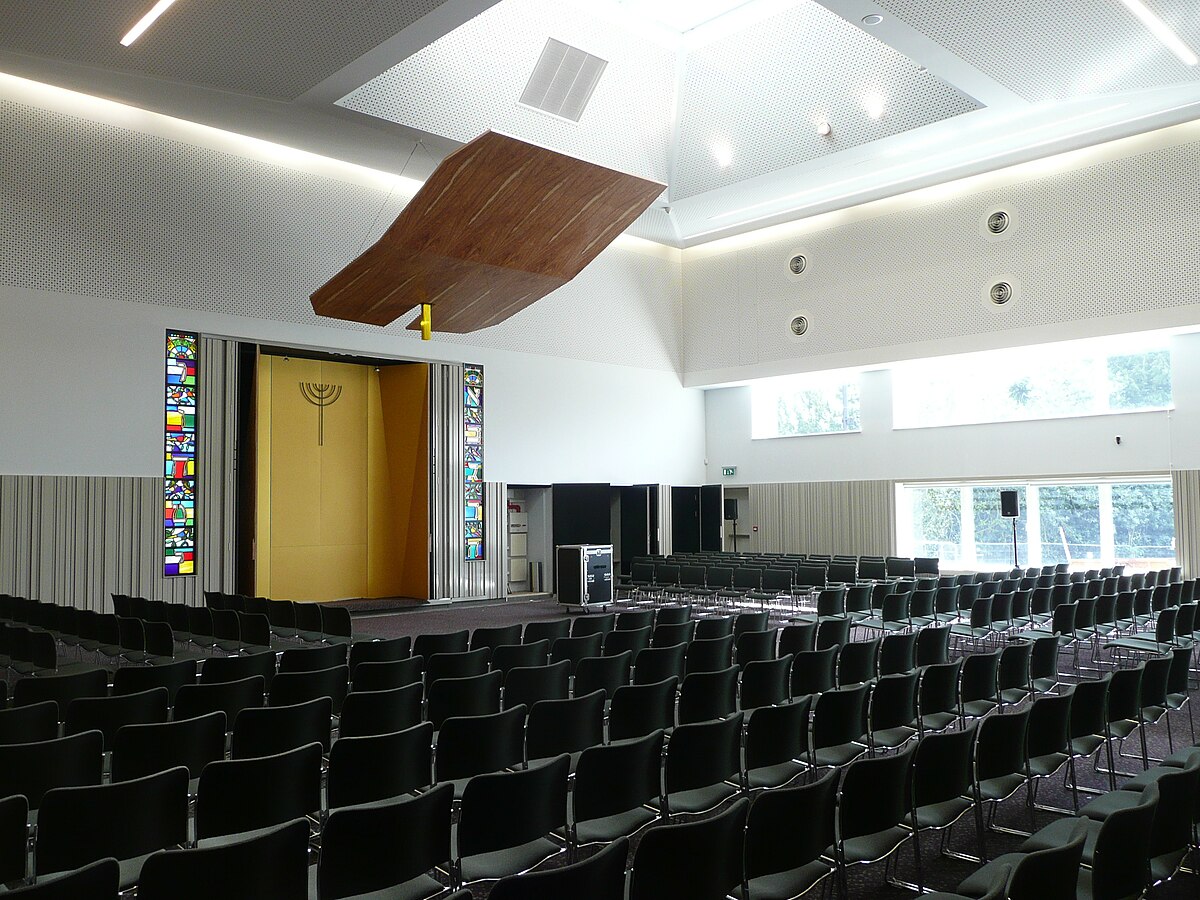
Some articles I’ve been reading recently:
On Jewish Revenge: An overview of themes of revenge in postwar modern Hebrew and Yiddish literature
A piece on bizarre forms of philosemitism in contemporary Germany: How German Isn’t It: The Ceremonial Performance of Jewishness in Germany
A piece on a very influential Bialik poem: The 120-Year Old Zionist Poem Still Being Used to Smear the Diaspora and Justify Atrocity
A tremendous D’var Torah on the concept of Ahavat Yisrael (Love of the Jewish People_ by Rabbi Aryeh Bernstein
Excellent podcast episode from Jewish Currents on the implications and efficacy of competing terms: Anti-Zionism/Non-Zionism/Cultural Zionism/Diasporism
*********************************************************************
In the early 1960s the British Jewish community was rocked by what would come to be called ‘The Jacobs affair’. It concerned Louis Jacobs, a brilliant Manchester-born Rabbi who had trained at the Ultra-Orthodox Gateshead yeshiva and was often seen as a future Chief Rabbi. Jacobs held a several prestigious posts, as Rabbi Manchester Central Synagogue, Munks in Golders Green and the New West End Synagogue in Bayswater. He became a tutor at Jews College, the British Orthodox Rabbinical training school, with the expectation that he would eventually become its principal. The trouble was that Jacobs was an independent thinker. While he loved the trapping of United Synagogue Orthodoxy, its top hats and rabbinical vestments, he also venerated academic scholarship, and particularly the academic study of religion. From his studies, Jacobs came to accept that ‘higher criticism’ of the Bible, or the ‘Documentary hypothesis’ was essentially correct; that the Hebrew Bible was written by a range of authors writing in different periods, and later collated and framed by a group of scribal editors. Jacobs argued that it was necessary for modern-thinking Jews to accept the truth of such arguments; he believed that Judaism could continue to be practiced, albeit with a new understanding, that revelation had come from human hands. Jacobs suggested that the phrase ‘Torah Min Hashamayim’ still stood, it just depended on how one understood the ‘min’ (from).
Continue readingEnd the War Already
If there was ever a credible case for Israel’s war on Gaza, the arguments have now evaporated

It’s time to stop the war. I admit I thought it was time to stop the war almost as soon as it began, but at that point I never thought it would still be raging, 6 months on. The time to end it is now.
I write here to those who have supported the war, if with caveats, and are to some degree continuing to do so. I’m assuming that the Israeli political and military leadership have some kind of rational arguments behind their actions. I appreciate that many believe that Israel is simply trying to kill as many Palestinians as possible, and the vast and terrible destruction we have seen in Gaza gives support to that view, but I think there is more going on than that. I still think that persuasion is important, even if forms of economic pressure are also needed, and that Jewish and Israeli supporters of the war are worth engaging with. If we want the war to end, and fast, we need to engage with them.
Continue reading
